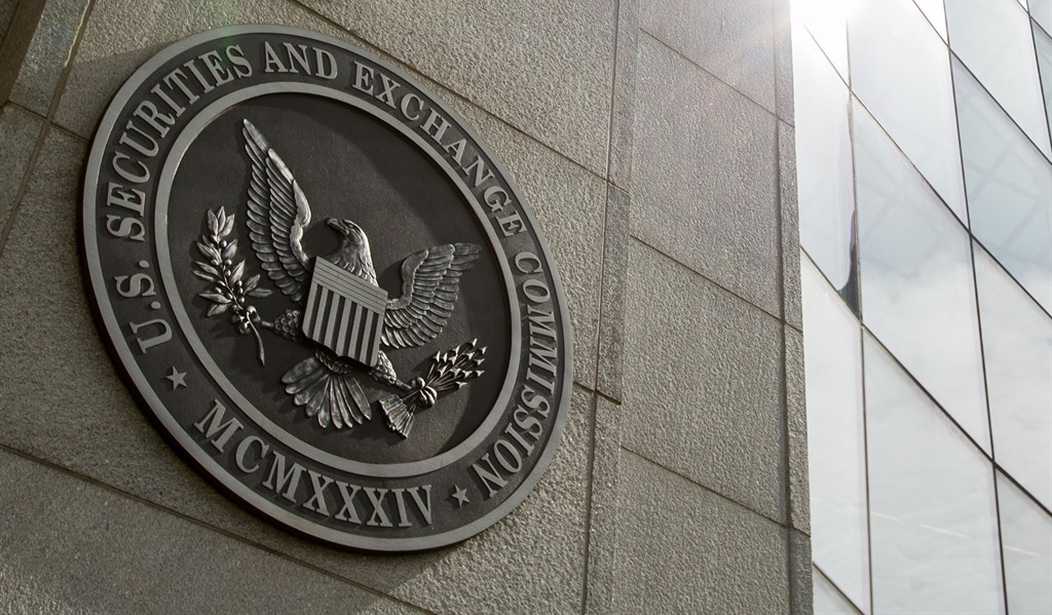Editor's Note: This column is co-authored by Derek Kreifels and Paul Teller.
Imagine a business that doesn’t manufacture any product, doesn’t sell anything of value and literally doesn’t earn a single dime in revenue – but still manages to raise millions of dollars on the New York Stock Exchange with the government’s approval. The idea is not only preposterous, it’s an obvious recipe for disaster – and yet it almost became a reality under Joe Biden’s administration.
Natural Asset Companies (NACs) are a proposed new type of business designed not to make money, but rather to manage and maintain the inherent “value” of natural assets like forests and rivers. NACs would lock up public lands from productive economic uses like farming and energy extraction, and instead assign arbitrary economic value to natural processes such as photosynthesis. These companies would then seek public investment, even though there is virtually no chance they would ever turn a profit. Unsurprisingly, the NACs proposal was heavily supported by the same people who support foisting radical left-wing environmental, social and governance goals on private businesses.
Last week, the NYSE withdrew its proposal from the Securities and Exchange Commission under intense pressure from state financial officers and conservative groups – but make no mistake, the NAC proposal is certain to reemerge after getting a PR makeover. Whatever new form the proposal takes, whatever clever name it is given, the SEC should shut it down on sight.
The fact is, there is no need for a new class of business when existing corporate structures have proven sufficient over centuries. Corporations, nonprofits and trusts can already buy and preserve public land. They just can’t dupe unwitting investors into coughing up their cash under the guise that they will somehow turn a profit by buying and then not using an expensive asset.
Recommended
We don’t use the word “dupe” lightly – in fact, deceit is at the very heart of the NAC proposal. NACs would exempt themselves from the generally accepted accounting principles other businesses must adhere to. The reason why is obvious: you can’t run a Ponzi scheme for very long without cooking the books.
And since NACs wouldn’t turn a profit, how could investors possibly determine the company’s worth? The company itself would assign a dollar value to the natural assets it owns. But how does one quantify, for example, the scenic beauty of rolling hills? One person may be willing to spend only money he could make back by using the land. Another may be willing to spend money to buy the land and preserve the view from his property. The beauty of a sunrise, the dew on a spider’s web, a child’s first kick in his mother’s womb, or a bride’s “I do,” the things that make life worth living, simply cannot be priced. But the geniuses pushing for NACs believe they can price the priceless.
Most concerning of all is the clear national security threat posed by NACs, which would provide opportunities for foreign adversaries like the Chinese Communist Party to gain control over essential American resources. It would be suicidal for the United States to outsource the management of our farmland, our national parks or our energy industry to Communist China.
Thankfully, America has dodged the bullet – for now. But the radical left is nothing if not persistent. When the NAC proposal rears its ugly head in the future, the SEC must fulfill its mission of protecting investors and maintaining fair markets. NACs are nothing more than an extreme environmental political agenda wrapped in a thin veneer of legitimate business, and would rival Enron, Bernie Madoff, and Dutch tulips in history's chronicle of all-time bad investments.
Derek Kreifels is CEO of the State Financial Officers Foundation. Paul Teller is the Executive Director of Advancing American Freedom.

























Join the conversation as a VIP Member